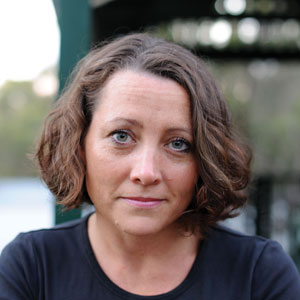True stories of brave young Australian boys sacrificing their lives in a bloody and senseless war, a war that belonged to Europe and the “old world”, have been woven into our identity as touch points to ignite a sense of Australian independence and valour.
 This year we mark the 100th year since the commencement of WWI.
This year we mark the 100th year since the commencement of WWI.
But according to Dr Sharon Mascall-Dare (pictured) from UniSA’s Narratives of War Research Group, the real history of WWI is far more complex, rich and indeed gives us more opportunity to reflect on our national character than has been popularly reported.
Dr Mascall-Dare, who authors The Anzac Day Media Style Guide e-book, says that not all the nation-defining moments of WWI have been previously reported by the media.
“We have to talk about Aboriginal soldiers who volunteered despite the fact that they were not, officially, allowed to enlist. We should also remember the Chinese Anzacs who fought and died at Gallipoli for a country that denied entry to Chinese migrants under the White Australia policy,” she says.
“Every Australian family has a different connection to the Anzac story and through the diversity and complexity of those stories from the home-front to distant battlefields we discover new memories of the past and new facets of our national character.”
She says it is especially important to be able to recognise the multicultural relevance of the war.
“About 40 per cent of the Australian population has a parent or grandparent born somewhere other than Australia,” Dr Mascall-Dare says. “There is no doubt that many of the Anzacs were from white, Anglo-Saxon backgrounds, and there were many who were ‘country boys’ from the bush.
“But there were also Anzacs who came from other backgrounds, and they fought alongside soldiers from a number of countries. Within the British forces alone, there were soldiers from around the world – France, New Zealand, India, Nepal, Australia and Newfoundland.
“The ‘Turks’ were also culturally diverse with many more countries represented in their ranks.
“The Gallipoli campaign was a global tragedy. Anzac Day offers the opportunity to remember its significance to so many families and nations, around the world.”
Further research led by UniSA’s Dr Brad West from the Narratives of War Research Group is exploring how the power of commemoration shapes memory and our recording of history.
The research, supported by Ashgate Publishing, will result in a book focusing on the coming swathe of anniversaries of major military campaigns – the WWI centenary, the bi-centennial of the battle of Waterloo, the 50th anniversary of American aggression in Vietnam, and the 150th anniversary of the American Civil War.
Entitled Commemoration and Traces of War, it will examine the remembrances of such historical events and their consequences for today, bringing together a range of academic experts from around the nation.
“The book will highlight how recent social and technological forces affect the act of commemoration and the shaping of new collective memories,” Dr West says.
“Digital archiving, transnational flows of historical knowledge, shifts in academic practice, changes in commemorative forms and consumerist engagements with the past all influence how we remember the past.
“The variety of evidence and impressions left by history and how these are picked up and used by social actors to promote a variety of engagements and understandings of past conflicts is important to understand in a culturally diverse and globally interconnected world.”